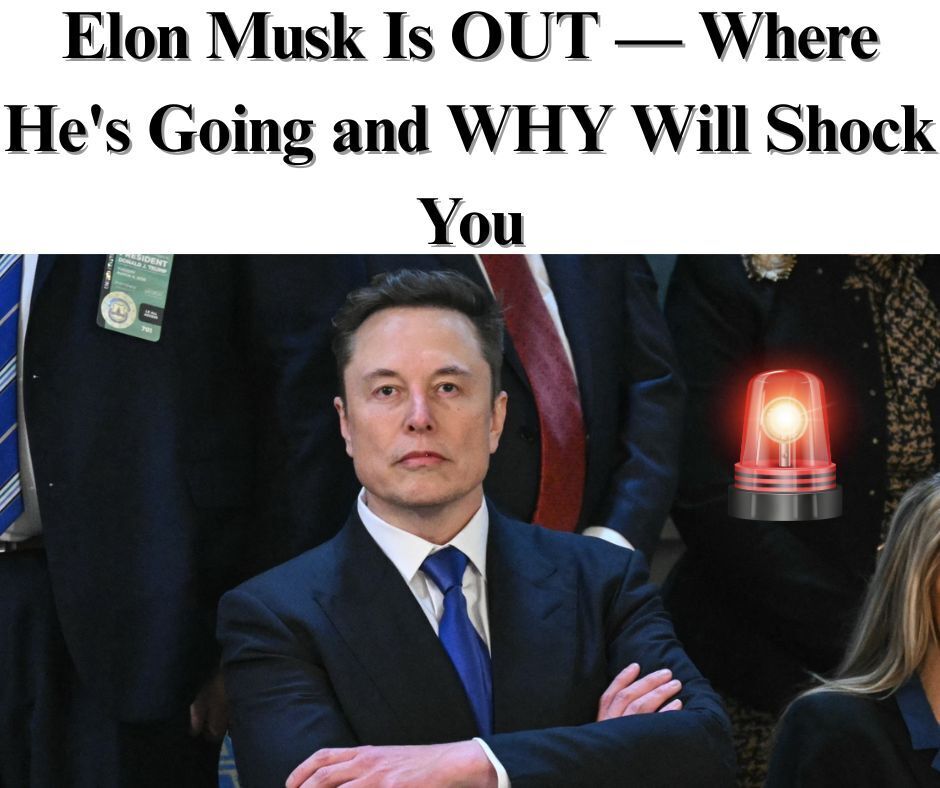Elon Musk is stepping down from his role as a senior adviser to President Donald Trump, concluding a high-profile stint aimed at shrinking and reshaping the federal bureaucracy via the Department of Government Efficiency.
The announcement, made Wednesday evening, ends a chapter marked by sweeping agency overhauls, mass layoffs, and a flood of lawsuits. In addition, Musk reportedly found the inner workings of Washington politics frustrating and ultimately achieved far fewer reforms than he had initially envisioned, the Associated Press reported.
Musk steadily scaled back his spending cut goals — from an ambitious $2 trillion to $1 trillion, and eventually down to $150 billion — as he grew increasingly frustrated with the entrenched resistance to his reforms.
He butted heads with senior Trump administration officials who allegedly resented his attempts to overhaul their agencies, and his aggressive push for cuts sparked intense political backlash from both parties, the AP added.
Musk’s stint in the Trump administration was always meant to be short-term, and he had recently made clear he planned to refocus on his core ventures, including electric vehicle giant Tesla and aerospace firm SpaceX.
However, administration officials had remained vague about when Musk would officially step away from his role leading DOGE. He ultimately announced his departure abruptly in a post on X, his social media platform.
Musk also ended his tenure with the Trump administration on an upbeat note, predicting that DOGE will continue to influence congressional spending reductions.
“As my scheduled time as a Special Government Employee comes to an end, I would like to thank President @realDonaldTrump for the opportunity to reduce wasteful spending,” he wrote. “The @DOGE mission will only strengthen over time as it becomes a way of life throughout the government.”
The legislation contains a mix of tax cuts and enhanced immigration enforcement, along with some spending reductions. Musk described it as a “massive spending bill” that increases the federal deficit and “undermines the work” of DOGE.
“I think a bill can be big or it could be beautiful,” Musk said. “But I don’t know if it could be both.”
Trump commented on the legislation from the White House on Wednesday, indicating that he didn’t think it was perfect, either, but acknowledging the difficulties in getting Congress to go along with certain aspects of it.
“I’m not happy about certain aspects of it, but I’m thrilled by other aspects of it,” he said, further suggesting that changes could be made.
“We’re going to see what happens,” he said. “It’s got a way to go.”
The bill narrowly passed the GOP-controlled House this month. It’s currently being debated in the Republican-controlled Senate.
Some GOP lawmakers also acknowledged and shared Musk’s frustration.
“I sympathize with Elon being discouraged,” said Wisconsin Sen. Ron Johnson.
Speaking at a Milwaukee Press Club event on Wednesday, Johnson added that he was “pretty confident” there was enough opposition “to slow this process down until the president, our leadership, gets serious” about reducing spending.
He added that no amount of pressure the president could apply would change his position.
Speaker Mike Johnson has urged the Senate to keep changes to the legislation to a minimum, warning that House Republicans negotiated a “very delicate balance” that could unravel if the bill is significantly altered. Because the House must vote again to approve the final version after Senate revisions, any major changes could jeopardize its passage, the AP noted.
Johnson thanked Musk for his efforts on Wednesday, pledging to pursue more spending cuts moving forward. He said, “The House is eager and ready to act on DOGE’s findings.”
The AP added: “The White House is sending some proposed rescissions, a mechanism used to cancel previously authorized spending, to Capitol Hill to solidify some of DOGE’s cuts.”
